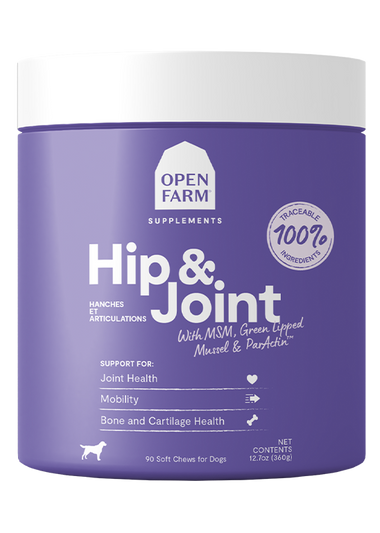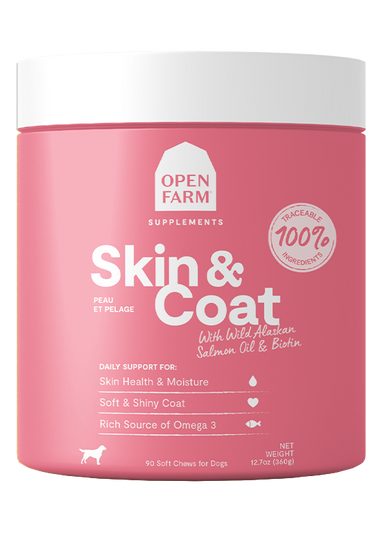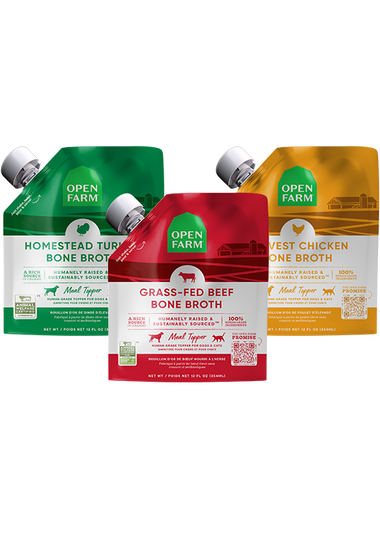Bernedoodles, a delightful mix of Bernese Mountain Dogs and Poodles, are known for their intelligent, affectionate nature. These charming dogs, often low shedding and friendly demeanor, make excellent family pets.
Their unique blend of traits from both breeds results in a playful yet gentle companion, adaptable to various lifestyles. Understanding their dietary needs is critical for maintaining their health and happiness, ensuring these loving pets thrive in their family environments.
Common Health Concerns With Bernedoodles
Bernedoodles inherit characteristics from both breeds, including potential health concerns. While generally healthy, awareness of common issues can help in proactive care and early intervention.
Joint issues. Like their Bernese ancestors, Bernedoodles may be prone to hip and elbow dysplasia.
Skin conditions. Their Poodle heritage can bring about skin allergies and sensitivities.
Eye problems. Conditions such as cataracts and progressive retinal atrophy could be a concern.
Bloat. A serious condition where the stomach dilates and sometimes twists.
Addison’s disease. A less common but serious condition affecting the adrenal glands.
Regular veterinary check-ups and a healthy lifestyle are key to managing these risks and ensuring a happy, healthy life for a Bernedoodle. You can also support their health by feeding your Bernedoodle a balanced, nutrient-rich diet.
Key Nutrients for Bernedoodles
Bernedoodles require a balanced diet rich in specific nutrients to maintain their health and prevent common health issues.
Proteins. High-quality proteins are essential for muscle growth and repair and support your Bernedoodle’s active lifestyle. Good sources include lean meats like chicken, beef and fish. Adequate protein can help prevent muscle wasting and support joint health, reducing the risk of dysplasia.
Fats. Omega-3 and Omega-6 fatty acids from sources like fish oil and flaxseed are crucial for a Bernedoodle’s coat and skin health. They may help reduce inflammation, which is beneficial if your dog has skin allergies and joint issues.
Carbohydrates. While less critical than proteins and fats, carbohydrates give your pup energy. Whole grains or vegetables in their diet can offer sustained energy and help them maintain a healthy weight and prevent obesity-related issues.
Vitamins and minerals. A balanced intake of vitamins and minerals supports your Bernedoodle’s overall health. For instance, calcium and phosphorus are vital for bone health, reducing the risk of joint problems, while vitamins like A and E support skin, eye and immune health.
Special dietary considerations. Considering their allergy tendencies, Bernedoodles may require a diet formulated for sensitive skin or stomachs. Hypoallergenic foods or a limited-ingredient diet can be beneficial for pups with allergies.
Best Foods for Bernedoodles
Selecting the best dog food for your Bernedoodle means choosing a formula that contains ingredients that promote a healthy GI tract, skin and joints, while providing your pup with plenty of energy to live an active lifestyle. Some of the best foods for Bernedoodles include:
Bone Broth
Bone broth is an excellent nutritional choice for Bernedoodles, particularly for supporting joint and digestive health. Rich in collagen, glucosamine and chondroitin, it helps maintain strong, healthy joints, reducing the risk of issues like dysplasia.
The amino acids and minerals in bone broth also aid in gut health, promoting efficient digestion and nutrient absorption. This easily digestible, hydrating supplement can be ideal as a topper for their regular meal or used to rehydrate freeze dried dog food or kibble.
Gently Cooked Wet Food
Gently cooked wet food is an excellent choice for Bernedoodles, particularly in the potential of reducing the risk of gastrointestinal issues such as bloat. This type of food is typically easier to digest, ensuring a smoother gastrointestinal process.
The higher moisture content helps maintain hydration, which is essential for digestive health and regular bowel movements. Additionally, the cooking process preserves nutrients while making them more bioavailable, helping with overall digestion and nutrient absorption.
How to Feed Your Bernedoodle
Ensuring your Bernedoodle is fed correctly is crucial for their healthy lifestyle, as it provides them with the essential nutrients they need. For Bernedoodle puppies, maintain a regular feeding schedule of three to four meals daily. Choosing puppy food formulated for large breeds supports their proper growth and development.
As your Bernedoodle matures into adulthood, transition to 2 meals per day spaced 12 hours apart. This helps maintain their metabolism and can prevent issues like obesity and bloat. If your Bernedoodle tends to eat too quickly, consider using a slow feeder to encourage slower eating, which is better for digestion and can prevent problems like bloat.
When considering how much to feed your dog, the amount depends on your pup’s size, health and lifestyle. Standard Bernedoodles, which can weigh between 61 and100 pounds and stand up to 29” tall, require more food compared to Mini Bernedoodles, which weigh between 20 and 45 pounds and stand up to 22” tall and Toy Bernedoodles, weighing less than 20 pounds and standing 12”-7” tall.
A more active dog will need more calories than one less active. Tailor the portion sizes to meet your pet’s requirements and if you’re uncertain, consult with your veterinarian.
Help Your Bernedoodle Thrive With Open Farm
Open Farm’s range of sustainably sourced dog food contains ingredients specially formulated to give your pup the energy and nutrients it needs to live a happy, healthy life. Explore the complete selection of wet, dry and freeze dried raw food and treats available at Open Farm and give your Bernedoodle the best nutrition possible.
This article is meant only as an example meal with fully balanced nutrition, please reach out to our customer experience team if you have any questions about your pet’s own unique circumstances! To ensure these products are a good fit for your pup, we also recommend consulting your pup’s vet about any new supplement or diet changes, especially if there is a medical concern. They should be able to help as you and your vet know your pup’s medical history best!





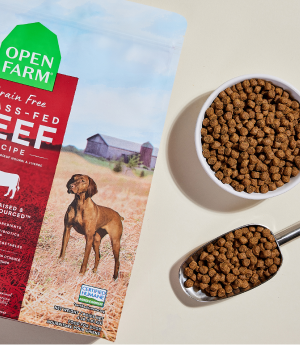
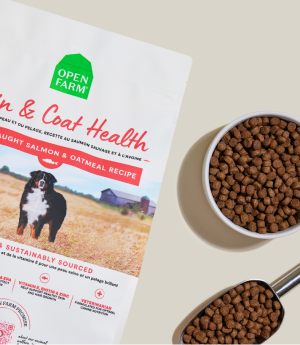
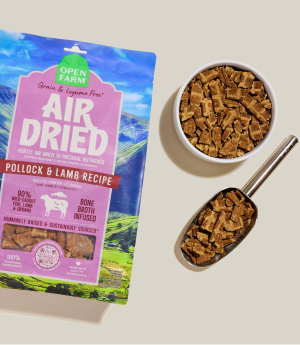
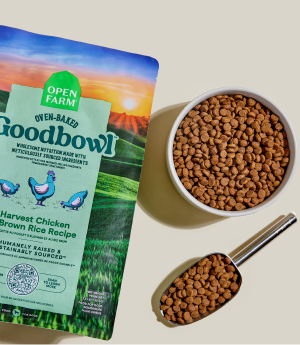
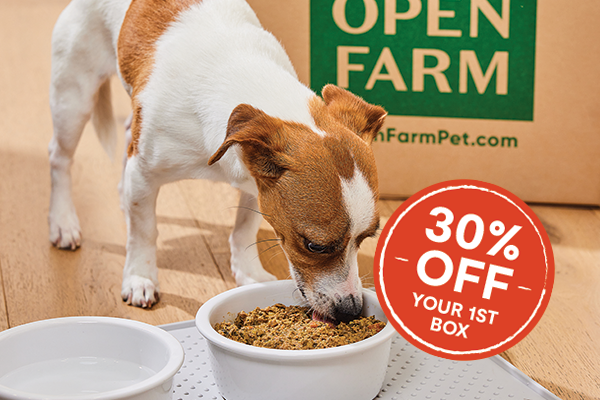

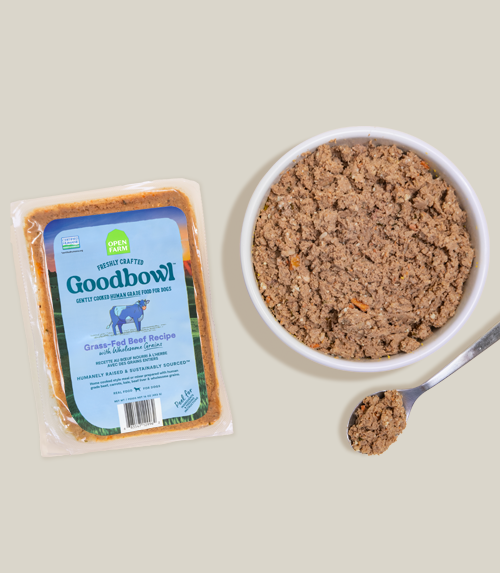

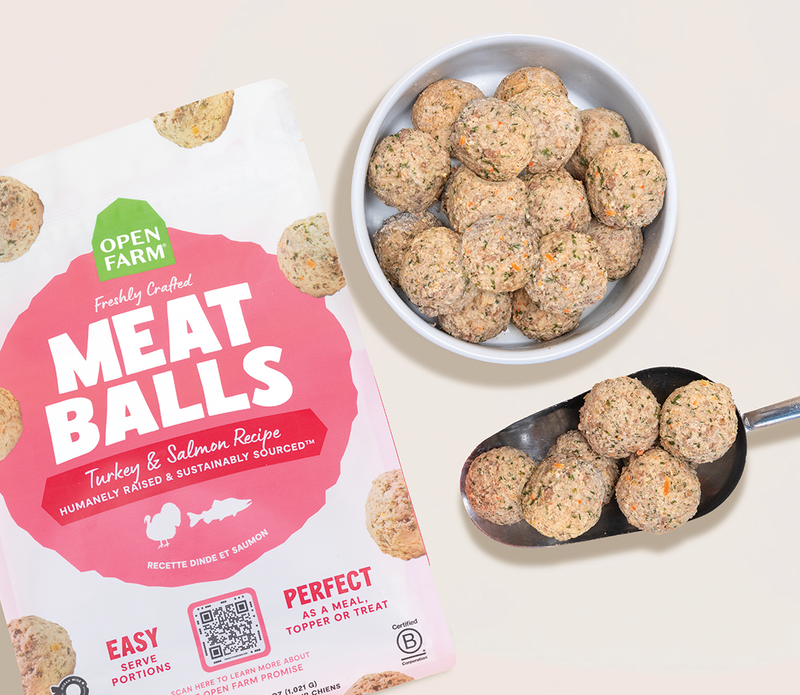
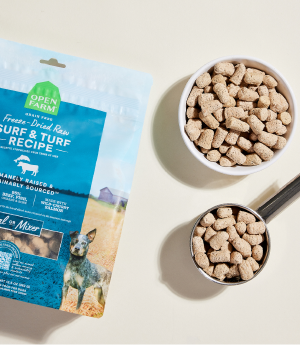
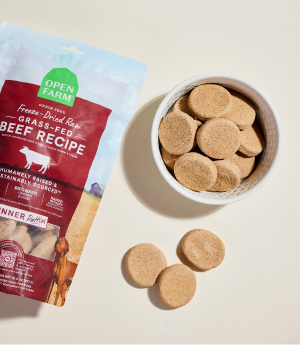
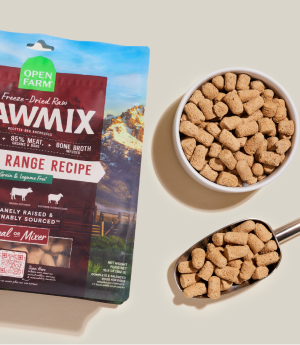
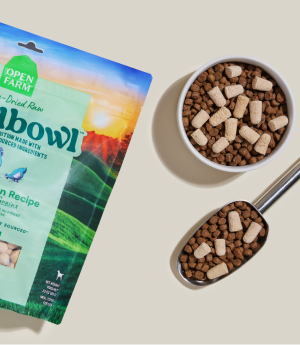
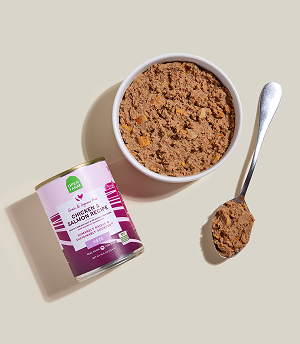
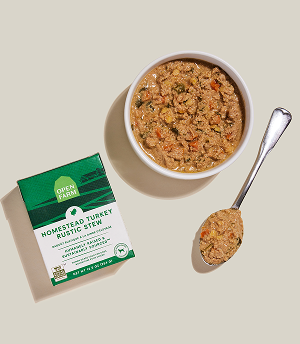
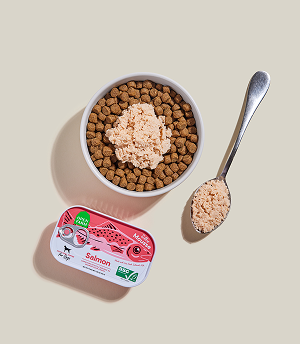
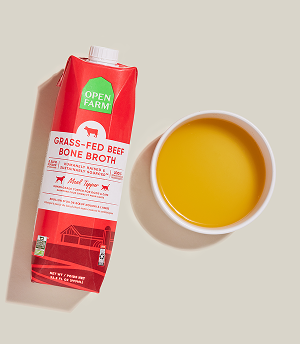

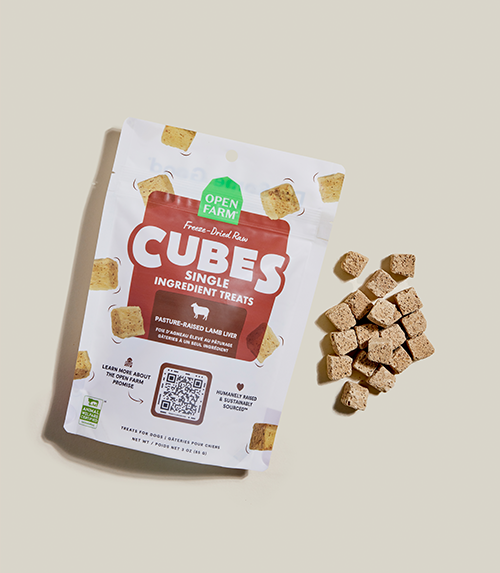
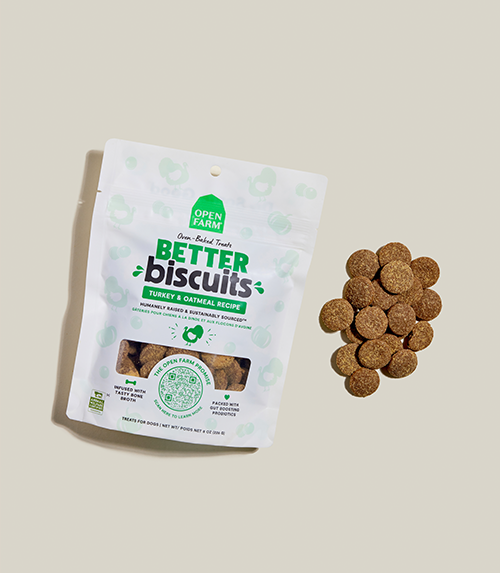











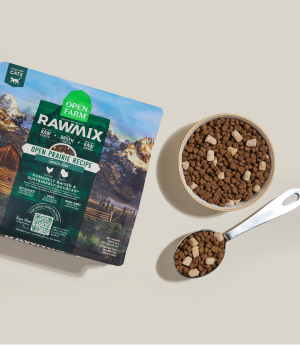
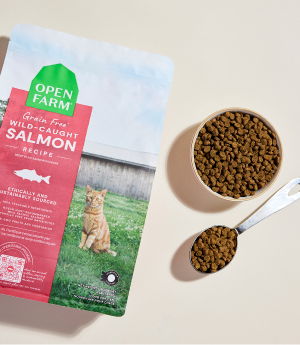
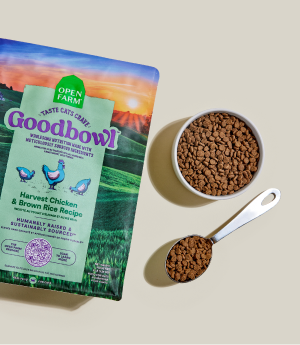
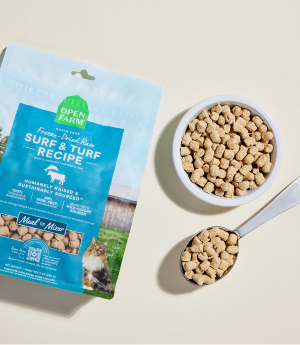
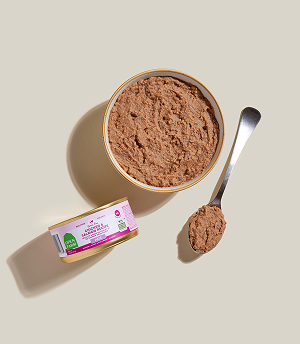
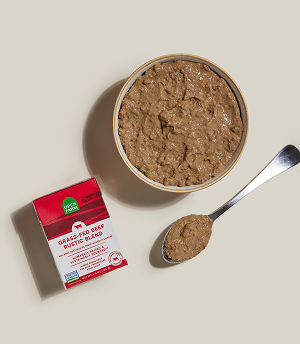
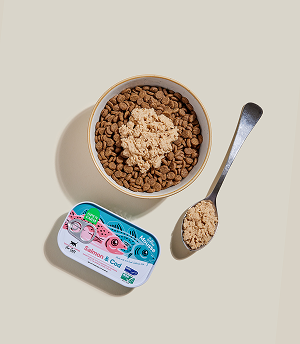
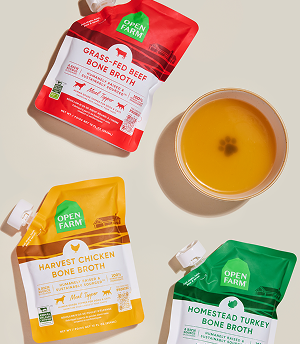
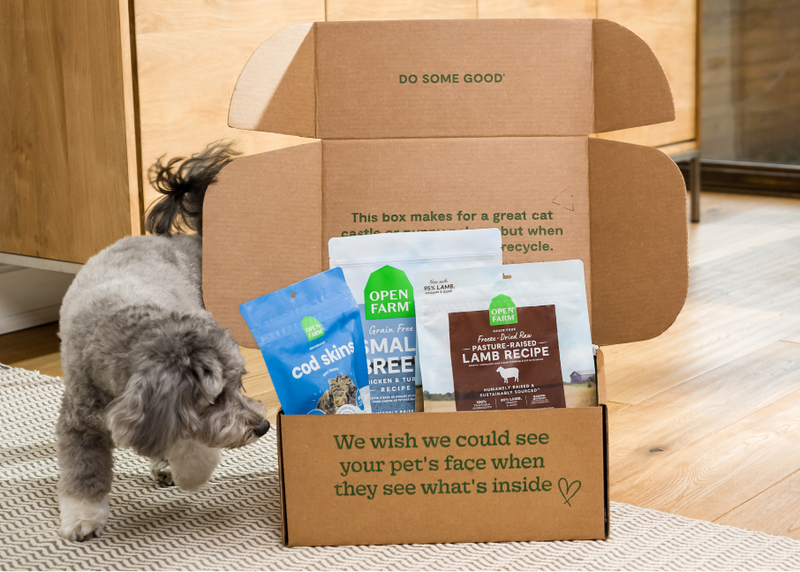
 Sign In
Sign In
 Create Account
Create Account




